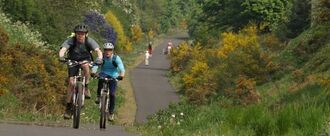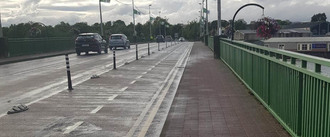- Featured
- Animal Rights
- Anti-racism
- Arts & Culture
- Children
- Climate
- Corporate accountability
- Crime
- Disability rights
- Economic
- Education
- Environment
- Food and Sustainable Production
- Gender Equality
- Governance and Transparency
- Health
- Housing
- LGBT Rights
- Mental health
- Northern Ireland
- Planning
- Privacy and Data Protection
- Rural Inequality
- Social Justice
- Trade
- Transport and Infrastructure
- Workers' Rights
- More
-
Reform the Arterial Drainage ActThe Office of Public Works (OPW) is mandated under the Arterial Drainage Act 1945 to 'maintain' over 11,000km of river channel in Ireland - something that has resulted in the destruction of whole river systems. We need a new law that is fit to address the biodiversity and climate crisis and that works with - and for - people and nature.5,522 of 6,000 SignaturesCreated by Padraic Fogarty

-
Apologise to Survivors of Mother and Baby 'Homes'The Local authorities were responsible for the Mother and Baby 'homes'. They funded the institutions and failed to protect the women and children. The sites of these institutions, including their burial grounds, must be protected from redevelopment.480 of 500 SignaturesCreated by Maureen Considine
-
No White Water Rafting White ElephantWe have so many homeless people, so many better things to do with this money than this nonsense.413 of 500 SignaturesCreated by Maura O'Toole
-
Ag fas le cheile! Say yes to a 100 % Organic, Chemical-free and GMO-free IrelandDear Friends, I just created the petition: Ag fas le cheile! Say yes to a 100% Organic, 100% Chemical-free and 100% GMO-free Ireland. It would mean a lot to me if you took a moment to add your name because: A journey’s end matters not, for it is the journey itself that inspires, enriches and delights. As I took “the road less travelled” 18 months ago, I could not have imagined the amount of learning to be had on this road; for I am now less dependent on certain modern conveniences than I was in May 2019. Now in November 2020, I am • 100% shampoo-free • 100% clothes detergent-free • 100% washing-up liquid free • 100% dishwasher liquid free • 100% all-purpose cleaner free • 99% bin-free. In short, grey water that leaves my house is virtually chemical free with a minimal toxic load to the environment. My garden is 100% Organic, 100% Chemical-free and 100% GMO-free and has been for about 10 years. With the continued support from local Clare businesses and shops, Clare media and a waste prevention grant from Clare County Council, Operation de-Plastification with its “slim your bin or bin your bin challenge” has been able to inform, encourage, support and lead-by-example on the quest to waste reduction, particularly plastic related waste in the shape of single-use plastic bottles and plastic packaging. With the submission to Clare County Council for the Clare Local Development Plan 2022 – 2028 "100% Organic, 100% Chemical-free and 100% GMO-free", I am hoping to sow the seed for a different Clare, and by extension a different Ireland, to highlight a path that has been taken by other countries successfully and to encourage as many people of all ages and guises, including businesses and politicians, to re-think their habits and attitudes in relation to • everyday conveniences • everyday routines • everyday practices to aid the recovery of our planet, with an intact environment which in turn will support our future. The attempt to combine the Operation de-Plastification campaign and the vision for a post-pandemic County Clare, has generated the “ag fás le chéile” petition, where shoppers, sellers and consumers can voice, with their signature, their request for an enduring “green” Ireland. The petition aims to address all people living in Ireland: • Shoppers: we want to buy local, sustainable, affordable, nutritious, delicious, organic, plastic-packaging-free, chemical-free and gmo-free goods • Sellers: we want to sell local, sustainable, affordable, nutritious, delicious, organic, plastic-packaging-free, chemical-free and gmo-free goods • Consumers: we want to enjoy local, sustainable, affordable, nutritious, delicious, organic, plastic-packaging-free, chemical-free and gmo-free goods Assuring our environment’s and our survival, “the road not taken” may lead to a life and life-style where less is more, as less is more than enough in my experience. With the kindest regards, Cornelia Wahli Operation de-Plastification Campaign Slim your Bin or Bin your Bin Challenge “Ag fás le chéile” Petition ____________________________________________________________________ https://my.uplift.ie/petitions/ag-fas-le-cheile-say-yes-to-a-100-organic-chemical-free-and-gmo-free-ireland Real change happens when everyday people like you and I come together and stand up for what we believe in. Together we can reach lots of people and help create change around this important issue. After you've signed the petition, could you also take a moment to share it with others? It's really easy – all you need to do is forward this email. Thank you!75 of 100 SignaturesCreated by cornelia wahli
-
SAVE MOUNT LEINSTER FROM INDUSTRIAL DEVELOPMENTCoillte proposes to build 7 colossal wind turbines on the slopes of Mt Leinster, adjacent to a Special Area of Conservation. With a proposed height of 178m, significantly higher than any existing turbine in the region, this scale is normally placed offshore. There has been inadequate public consultation about this wind farm proposal and the majority of the local community are unaware of it. As local representatives, we urge you to safeguard this visually sensitive and ecologically valuable area and to protect our natural heritage for future generations. We appeal to you to collaborate in order to save Mt Leinster and the Blackstairs by taking the following measures: 1. Suspend the current windfarm planning application process until circumstances allow for appropriate public consultation. Coillte’s planning strategy has deprived the local and wider community of their right to engage in meaningful participation. 2. Introduce an immediate moratorium on new wind farm developments pending updating of the outdated 2006 national wind energy guidelines. 3. Strengthen County Carlow’s Wind Energy Strategy (WES) by making Mt Leinster and The Blackstairs a “No Go” area for windfarm development and industrialisation of any sort. 4. Strengthen legislation to protect our biodiversity and our Special Areas of Conservation (SACs). 5. Protect and preserve our wild places. • This proposed windfarm would destroy the Mt Leinster region and have a hugely negative impact on local tourism. Mt Leinster attracts locals and visitors from all over the country to its mountain wilderness. They engage in all sorts of activities from strolling along the beautiful country lanes in the unspoilt rural foothills of south County Carlow, to hillwalking, mountain biking, paragliding, kite flying, eco trailing, foraging and birdwatching. - The proposed turbines would be directly in front of the Nine Stones, a designated protected viewing point. The wonderful panoramic vista that currently greets visitors would be replaced by the sight, sound and flicker shadow of these massive industrial turbines, which would totally dominate the landscape. - The turbines would be seen from many scenic trails in Ireland’s Ancient East including The South Leinster Way, The Mount Leinster Heritage Drive, The Sky Road and newly launched Turas Columbanus part of the Europe-wide Columban Way. • With the exception of a small group of local landowners who were briefed in Oct 2019, there has been no public consultation by Coillte. Notwithstanding Covid 19 restrictions, there was no dissemination of information by any means for over a year. - An online information site about the proposed windfarm only went live at the end of Nov 2020 - see www.croaghaunwindfarm.ie approximately 9 days before the planning process began. - The distribution of an information brochure, only circulated in the first week of Dec 2020, was limited to houses within 2km of the proposed windfarm. • Of additional concern is the proposed access route for transport of building materials from Bunclody to Mt Leinster. This route runs through an area of outstanding natural beauty comprising narrow country roads, lined with ancient hedgerows and granite stone walls. They represent a rapidly vanishing aspect of our built and natural heritage. Once destroyed they can never be replaced. Coillte state that they will “temporarily upgrade” this road in order to facilitate transport of oversize loads, which would include 110M columns and 65M rotor blades. • The windfarm would also have a detrimental ecological impact. The Blackstairs contains a vast SAC, a designation which protects endangered habitats and biodiversity. The proposed windfarm site is just 400M from this SAC boundary. Only 13% of Ireland has SAC status. In this time of biodiversity crisis it is profoundly ecologically unsound to build an industrial wind farm so close to an SAC. - The proposed construction site is partly comprised of blanket bog. The recent catastrophic bogslide in Donegal demonstrates the devastating environmental destruction wreaked by inappropriate windfarm planning on bogland. • The new climate emergency bill has identified offshore wind energy as the most efficient solution to Ireland’s climate crisis. Our government has committed to the rapid development of this technology early next year. - It makes no sense to put gigantic and environmentally destructive wind turbines on land in one of the most scenic parts of Ireland when a much more efficient and environmentally sensitive technology will be available offshore in the near future. • Carlow’s WES describes the Mt Leinster/ Blackstairs region as unsuitable for windfarm development because of its value for tourism, the high quality of its scenery and the sensitivity of its landscape. - This same strategy states that Mt Leinster and 14 other areas across the Blackstairs are still “open for consideration” for windfarm development. - This anomaly needs to be addressed - if planning permission is granted for this windfarm it will set a precedent and create the potential for the proliferation of windfarms throughout The Blackstairs. • Currently there are very few wind turbines on the Carlow Blackstairs, but the NW corner of the Wexford Blackstairs is saturated with them. - Wexford’s WES has responded to this by making the Wexford Blackstairs a “ No Go area" for windfarms. - Can Carlow County Council collaborate with Wexford County Council and treat The Blackstairs mountain range as a single entity and protect it accordingly? • Mt Leinster and the Blackstairs have escaped the industrialisation that has blighted so many other parts of rural Ireland. Wild unspoilt places are few and far between. Once lost they are gone forever.3,651 of 4,000 SignaturesCreated by The Blackstairs and Barrow Valley Network .

-
Preserve and Restore Lovers Lane Ródán, CarndonaghAt a time where 'connection' has become so important as we have all reflected on the effects of this pandemic on our families and communities, we must stand to oppose the wilful damage to our local folk-history heritage sites and preserve these for the future. The restoration, preservation and reopening of the 'Ródán' known as 'Lovers Lane' should not be a political matter...it is a necessary action to protect the living history and shared heritage for our community. 'Lovers Lane' is recorded as a public right of way on OS maps dating to the 1800's and is likely to be much older than this. There is a strong local folklore history connected to this site which is currently in the process of being ripped out by bulldozers by a local construction firm in the name of development. The planning documents show no permissions to interfere, damage or indeed close this public right of way...no public notification has been made to announce the closure of this public pathway which is heavily used by walkers, who now, due to the illegal closure and damage to the pathway, have to walk across a newly opened construction site entrance (which there is no planning permission for) along a busy narrow road and onto a major artery road, putting the public in harms way. We, the undersigned community of Carndonagh insist on the cessation of damage, the restoration to it's original state for preservation and the immediate reopening of the Ródán 'Lovers Lane' in Carndonagh, Co. Donegal.671 of 800 SignaturesCreated by Sinead Smyth
-
Better lighting in Phoenix ParkFor years Phoenix Park has been providing a place for exercise and fresh air but has never been fully utilised during the winter months due to poor lighting.In these winter months, people have a right to use and feel safe in their parks. This is especially important during Covid restrictions when indoor facilities are closed. Many of us have other responsbilities such as work, caring, school etc during day light hours. The lack of lighting in the park means people feel unsafe going to get the exercise needed for our mental and physical health. We want the OPW to enable the public make use of the park, even during dark evenings. Additional lighting could be installed for limited periods along the main road, helping people stroll, walk or run safely throughout the winter months.682 of 800 SignaturesCreated by Cllr. Darcy Lonergan
-
One Stamp for All Spouse and Dependents Immigrants #Equal Rights IrelandImmigrants spouses are being treated and marked as herds by giving them stamp 3/1g, making it impossible for them to access the job market. What are the spouses being punished for?? It is causing mental and health deterioration for the skilled immigrants who are suffering financially by being dependent on spouses. Isolation during covid-19 is building up some serious mental concerns as depression and suicidal thoughts. Furthermore adding to the misery of immigrants, stamp 1g is given to the graduates on job search and spouses of CSEP holders and hosting agreement holders. Recruiters are not willing to entertain anyone on Stamp 1g or stamp 3. Now with many of them listing an eligibility criteria as EU/Stamp 4 holder only may apply. Immigrants' spouses who have stamp 1g or stamp 3 are as if they are handcuffed for a crime which is simply being a dependent to a permit holder or critical skill worker. Dependent immigrants want to work and equally contribute to the society and pay taxes.58 of 100 SignaturesCreated by Aysha Mazhar
-
Reinstate South East Rail NetworkHelp us protect and improve public transport & infrastructure for future generations.Engage in a multi-year process of improving services to make rail transport a successful transport option in the South East of Ireland.656 of 800 SignaturesCreated by Una Dunphy
-
Allow off-grid, low impact housing in IrelandIn Ireland our individual ecological footprint is approximately 5.2 Global Hectares per Capita (ghc) but the Planet’s actual capacity is only 1.8 ghc: we are living as if there are almost three Planet Earths. This way of life is not only contributing to mass extinction, pandemics and extreme economic inequalities, it means that, in all likelihood, our country will be uninhabitable for our grandchildren. A One Planet Development scheme would give people the option of moving out of the city and into the countryside to pioneer a way of life that goes some way towards bringing the human-nature relationship back into balance. It would allow people to build small low-impact dwellings, to establish community and to work with the land in a regenerative way to bring systemic change to our food systems.4,508 of 5,000 SignaturesCreated by Róisín Dexter
-
Ballinasloe MUST be on The Athlone- Galway Greenway RouteThe Athlone to Galway Greenway being routed through Ballinalsoe is essential to: - REJUVENATE much needed economic activity to revive a rural gateway to the west town and its surrounding hinterland. -STIMULATE huge tourism activity in the area creating sustainable employment and endless business opportunities. -ENCOURAGE health and well-being in the area to combat rising physical and mental health issues.2,278 of 3,000 SignaturesCreated by Loraine Treacy
-
Restore the vehicle lane on Shannon BridgeThe temporary cycle lane on Shannon Bridge implemented as part of the Council's 'Guiding Limerick Through Covid-19 Plan' has removed a full lane of inbound car traffic from the junction at Lower Shelbourne Road and Condell Road as far as the Dock Road roundabout. During the school term this roundabout is used by 25,000 cars daily, the northside of Limerick City cannot cope with one single lane of inbound traffic on this bridge. The junction at Lower Shelbourne Road onto Condell Road is already a bottleneck for traffic. It is a one-way turn towards Shannon Bridge so all traffic is going in the same direction. With only one lane for cars this will be a traffic nightmare. Using this junction is traffic for many schools such as Ard Scoil Ris secondary, Villiers secondary, Educate Together secondary, Salesians, JFK, and Gaelscoil Sairseal primary schools, plus Limerick Institute of Technology, as well as people on the northside travelling to schools in the city (e.g. the Model, the Project and Mary Immaculate College). We want to cycle safely across the bridge, but this is not the way to do it. People cycling down Mallow Street or from the Dock Road direction are not even using the new lane, they are still cycling out over the bridge on the left traffic lane - squeezing all incoming traffic into one lane coming against them is more dangerous for those cyclists. Please listen to people that are actually using this bridge on a daily basis. Motorists, passengers and cyclists. Older neighbourhoods is this area will suffer the most in this decision, traffic joining from Westfields and North Circular Road directions already wait in a tailback on school mornings to join traffic at Fernbank, this will get far worse. Traffic on the Condell Road will be worse as cars coming from Clonmacken meet traffic from Fernbank and all wait together to get over the bridge on that one single lane. This will cause huge delays, unnecessary mental health strain on everyone involved, and will be dangerous - and all for a cycle lane that isn't working. We request Limerick City & County Council restore the vehicle lane and remove the current setup, and instead implement proper cycle lanes instead of these "short-term measures on a temporary basis" as it is called in the Council's 'Guiding Limerick Through Covid-19 Plan'. https://www.limerick.ie/sites/default/files/media/documents/2020-07/limerick-city-and-county-council-guiding-limerick-through-covid-19-15-july-2020_0.pdf228 of 300 SignaturesCreated by The Silent Majority

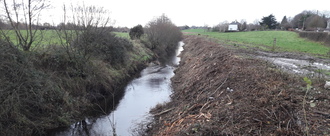
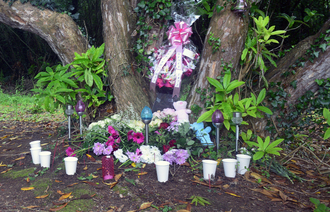
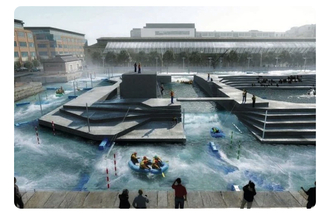

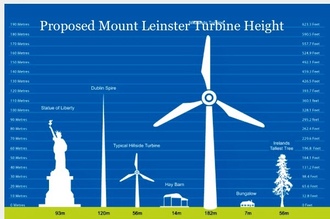



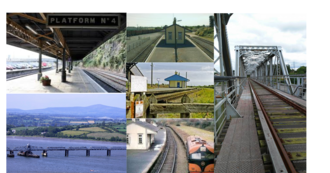.png)

